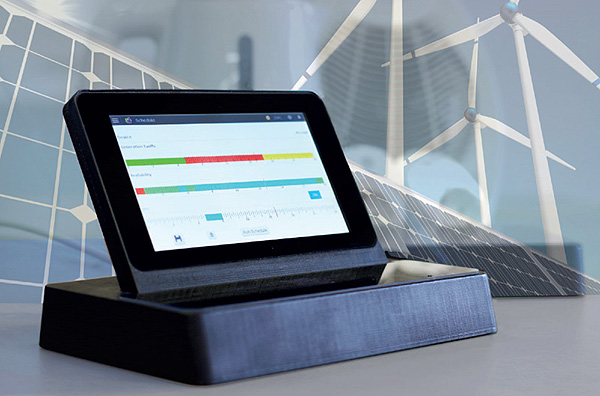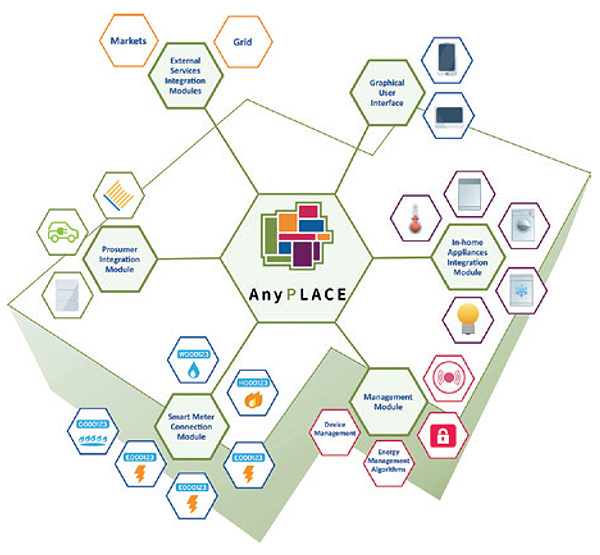While smart metering, smart home and CLS systems are gaining acceptance throughout Europe, they are mostly confined to the single household, and are not designed to allow or encourage users to become active participants in the energy economy.
AnyPLACE began in 2014 with a comprehensive review of the many factors, technological, cultural and legislative, that affect smart metering, home automation and controllable local systems in the different countries of the EU. For instance, Germany the Netherlands have mandated specially developed smart meter gateways, so that appropriate data is securely transmitted into the home, and to external actors such as the retailers and network operators. Elsewhere, in Portugal a mandatory smart meter interface for the home is required, while in Belgium there is still no specific legislation about the introduction of smart energy meters, though they are widely recognised as an important vector in the modernisation of energy grids and the interaction with the end-users.
The aim of AnyPLACE was not to define any new standards, rather to propose an architecture that could be applied in any country in Europe, to actively connect smart homes to the grid. The increase in the uptake of e-mobility, home generation and domestic energy storage had to be factored into the design.

AnyPLACE set out to define an architecture to actively connect smart homes to the grid, that could be applied in any country in Europe
Using the findings, the team, including participants from Germany, Portugal, The Netherlands and Austria, set out to develop an energy management system capable monitoring and controlling local devices according to the preferences of end-users, and take advantage of changing opportunities such as variable tariffs and micro-generation.
The solution had to provide excellent data security, but at the same time an adaptable interface, which could incorporate local languages, conditions and a wide variety of home systems, appliances, applications and devices. The project also had an ambitious target to create a prototype which could eventually be mass-produced for less than €100.
The vision of AnyPLACE goes far beyond commercial home automation systems, and proposes that users should be able to take part in new energy services and take advantage of whatever opportunities are presented by the changing energy market, not only to minimise their own costs but also to impact overall energy consumption and efficiency of demand and supply.

As well as smart home technologies, the increase in the uptake of e-mobility, home generation and domestic energy storage had to be factored into the AnyPLACE design.
AnyPLACE2020 concludes in June of this year, and a Public Event will be held in Dörentrup, Germany, where the majority of the field trials are installed, in May 2018. If you would like to attend this event, view an online demonstration, or get an information pack, please visit http://www.anyplace2020.org/final-event.
Participants:
Instituto de Engenharia de Sistemas e Computadores do Porto (INESCP), EFACEC, and Bosch Thermotechnology in Portugal, The Automation Systems Group of the Technical University of Vienna (TU Wien) Austria, Institute Industrial IT (inIT), Kreis Lippe and Power Plus Communications, Germany and the European Commission Joint Research Centre (JRC) located in The Netherlands.
Information:
web: www.anyplace2020.org

The AnyPlace project has received funding from the European Union’s Horizon 2020 research and innovation programme under grant agreement No. 646580.